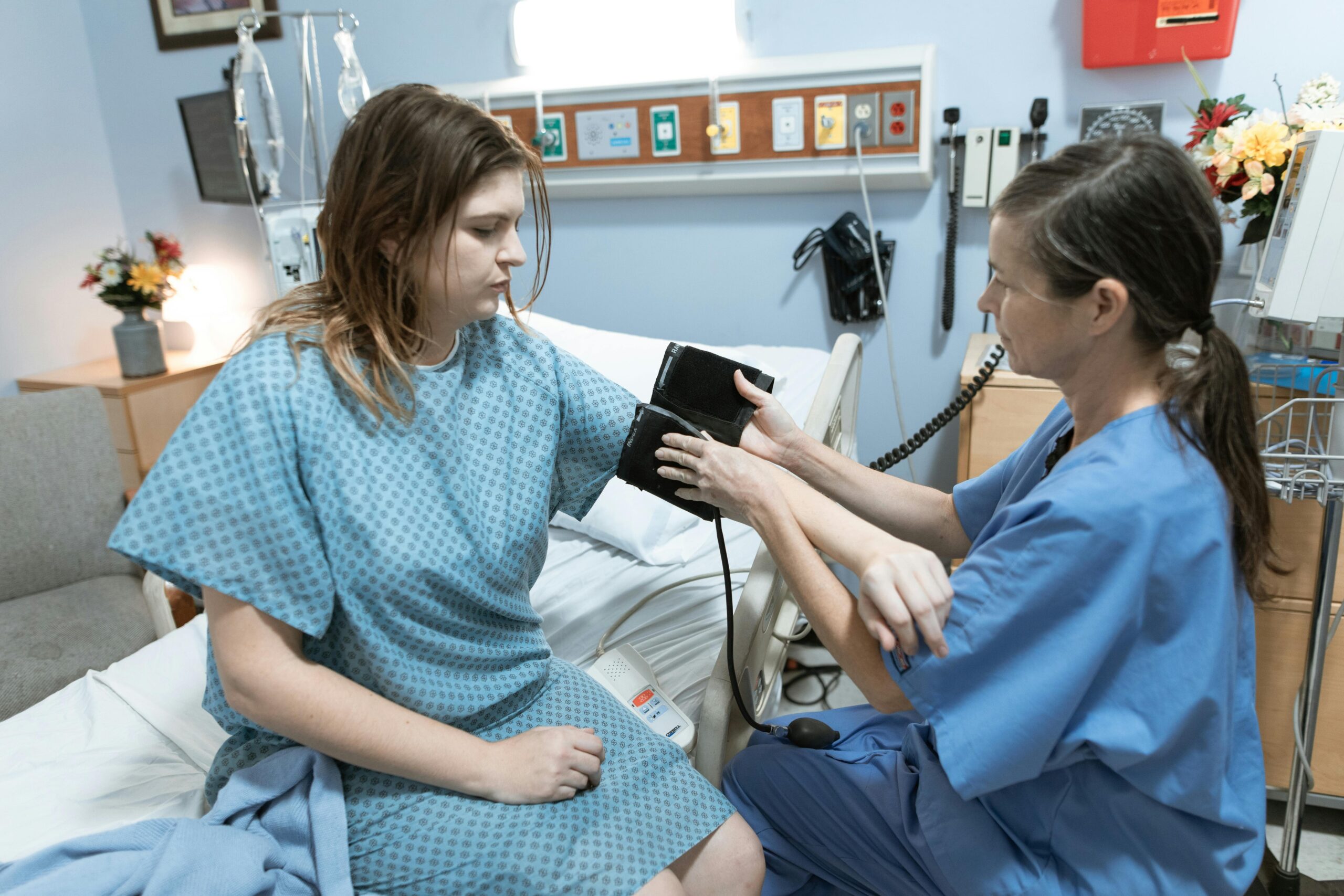If you or someone you love has reached the point of wanting help for opioid addiction, searching suboxone clinic near me is often the very first step. It is a sign of hope and courage, even if you are not sure what to expect next. That search can open the door to life-changing treatment. Yet when the results appear, they can feel overwhelming. Which clinic is safe? What does a Suboxone program actually involve? How can you tell if a telehealth clinic is legitimate or if you should see someone in person?
This guide will help you answer those questions clearly. It will walk you through how to find a trustworthy Suboxone clinic, what the process looks like from your first call to stabilization, and how virtual and local programs both play a role in recovery today. You will also learn what to expect in your first week of treatment, how to avoid common pitfalls, and how to take the next step with confidence.
At Renew Health, we believe treatment should be easy to access, medically sound, and built on compassion. Whether you live in a city with multiple clinics or in a rural area with none, there is a path forward. Let’s explore what to look for when you type suboxone clinic near me and what happens once you choose one.
What You’ll Learn in This Guide
-
How Suboxone treatment works
-
What makes a clinic trustworthy
-
How to choose between in-person and telehealth options
-
What to expect in your first week
-
How to pay for care and protect your privacy
-
Steps to build a lasting recovery plan
What Suboxone Is and How It Works
Suboxone is a medication that contains buprenorphine and naloxone. It helps reduce cravings and withdrawal symptoms for people with opioid use disorder. Unlike full opioids, buprenorphine only partially activates the receptors in your brain, easing withdrawal without producing a full high. Naloxone discourages misuse and protects against overdose if the medication is used incorrectly.
For many people, Suboxone becomes a bridge back to normal life. It allows you to focus on relationships, work, and health without being controlled by cravings. Clinical research and years of patient experience show that staying on medication treatment can cut the risk of overdose and relapse dramatically.
Understanding how Suboxone works helps you see why finding the right clinic is so important. A quality suboxone clinic near me should offer a structured plan that includes medical evaluation, personalized dosing, counseling support, and ongoing follow-up. The goal is not to taper off quickly, but to stabilize first and build a foundation for long-term recovery.
Why Choosing the Right Suboxone Clinic Matters
The words suboxone clinic near me can mean many things online. Some are full-service medical programs with licensed professionals who follow best practices. Others may be pop-up cash-only offices that lack oversight or follow-up. Knowing the difference can protect your health and your recovery.
A good clinic will:
-
Provide a full medical and substance use history assessment before prescribing
-
Offer same-day or next-day appointments when you are ready to start
-
Explain induction and maintenance in clear terms
-
Discuss counseling, peer support, and relapse prevention
-
Create a safety plan and make naloxone available
-
Respect your privacy and treat you with dignity
Avoid clinics that promise “detox in three days” or advertise miracle cures. Recovery takes consistent care, not quick fixes. The right clinic will focus on evidence-based treatment and long-term success, not on getting you in and out as fast as possible.
How To Evaluate Suboxone Clinics Near You
When you start searching online, you will see dozens of listings. Here’s a straightforward way to narrow them down to safe, reputable providers.
1. Check credentials
Every provider should be licensed to prescribe buprenorphine in your state. Most states allow physicians, nurse practitioners, and physician assistants to provide this care. You can verify credentials through your state’s medical board website.
2. Look for transparent information
Good clinics list their services, appointment process, and payment options clearly. If a clinic does not provide a phone number, address, or any background on its clinicians, move on.
3. Read reviews thoughtfully
Patient reviews can highlight professionalism, empathy, and accessibility. Pay attention to how the clinic responds to negative feedback. A clinic that communicates respectfully online often treats its patients the same way in person.
4. Ask about timing and follow-up
You deserve care that starts quickly. If one clinic has a long waitlist, call another. Consistent follow-up visits in the first few weeks are essential to stabilize your dose and adjust to the medication.
5. Consider telehealth options
If you live far from a clinic or prefer privacy, telehealth may be the best fit. Licensed telehealth programs can start treatment through virtual appointments, coordinate with your local pharmacy, and provide ongoing monitoring from home.
The Rise of Telehealth Suboxone Clinics
Over the past few years, telehealth has changed how people access addiction treatment. You can meet with a licensed clinician through secure video, complete your evaluation, and have your prescription sent directly to your pharmacy.
Telehealth expands access for people in rural areas or those who cannot easily take time off work or arrange transportation. It also provides a private setting, which many people appreciate. A strong telehealth suboxone clinic near me will have a clear process for:
-
Initial video consultation and medical history review
-
Guidance on when to start your first dose
-
Digital communication for questions or side effects
-
Refill coordination and lab follow-up when needed
-
Emergency support and connection to counseling
Renew Health offers this kind of care, bridging the gap between convenience and clinical safety. Telehealth should never mean you are alone. It simply brings professional help to your screen instead of a waiting room.
In-Person Suboxone Clinics: When They Make Sense
While telehealth is effective for many, in-person clinics are still valuable. You may prefer seeing your provider face to face, especially if you have other health conditions that require physical exams or lab work.
An in-person clinic can also help coordinate directly with local pharmacies or behavioral health counselors. Many people start in person and transition to telehealth later once they are stable. The most important factor is continuity. Whether virtual or in person, your clinic should check in regularly, monitor progress, and adjust care as needed.
Preparing for Your First Appointment
Starting treatment can feel intimidating, but preparation helps. Here’s how to make your first visit or telehealth appointment go smoothly.
Gather information: Bring a list of medications, allergies, and your substance use history.
Plan for withdrawal: Suboxone should be started when you are in mild to moderate withdrawal. Your clinician will guide you on timing your first dose to avoid discomfort.
Set expectations: The first week is about stabilization. You may not feel perfect immediately, but most patients notice major improvements within days.
Ask questions: Bring up anything you are unsure about. A quality clinic will explain each step clearly and check in after your first dose.
Plan for follow-up: Ask when your next appointment will be and how to contact your provider between visits.
Your First Week of Treatment
Day 1: You’ll meet with your clinician, discuss your symptoms, and begin your first dose once withdrawal starts.
Day 2–3: Your dose may be adjusted. Most people feel more stable and experience fewer cravings.
Day 4–7: You’ll check in again, either in person or through video. The focus shifts to maintaining your routine, managing any mild side effects, and planning next steps for counseling or support groups.
During this week, hydration, rest, and nutrition make a difference. Small wins like better sleep or fewer cravings are worth celebrating. Consistency builds momentum.
Insurance and Cost
Many clinics accept insurance, Medicaid, and Medicare. Always confirm coverage before your first visit. Ask these questions:
-
Is Suboxone covered under my plan?
-
What is the cost for visits and follow-ups?
-
Are telehealth appointments billed differently from in-person ones?
If you are paying cash, request a written estimate for the first month of care, including medication and appointments. Some clinics offer sliding-scale pricing or payment plans. Do not be discouraged by cost uncertainty. Make the call and ask. You may be surprised how affordable treatment can be when you know your options.
What Recovery Looks Like After Stabilization
After the first few weeks, most people move into a maintenance phase. You may see your provider monthly, refill your prescription, and focus on long-term stability. Counseling, peer groups, and lifestyle changes often become part of this plan.
Over time, the benefits compound: fewer cravings, better relationships, improved mood, and a sense of normalcy. Some people remain on medication for a year or longer, others taper off gradually with medical support. The timeline is personal and based on your comfort and safety.
Recovery is not a straight line. If you have a setback, the right clinic will help you re-stabilize quickly rather than judge or discharge you. Compassionate care means staying connected, not starting over.
Common Myths About Suboxone Clinics
Myth 1: Suboxone is just replacing one drug with another.
In reality, Suboxone is a medically supervised treatment that stabilizes brain chemistry and allows healing. It reduces overdose risk and supports functional recovery.
Myth 2: You can only start in person.
Telehealth programs make it possible to begin treatment safely from home. These visits follow the same medical standards as in-person care.
Myth 3: Suboxone treatment is short-term.
There is no universal timeline. Many patients stay on medication for as long as it helps them stay healthy. The goal is stability, not a race to stop.
Myth 4: Clinics judge people for relapse.
A good suboxone clinic near me will treat relapse as a signal for more support, not punishment. The right response is care, not shame.
Myth 5: You have to hit rock bottom before getting help.
You can start treatment at any stage. Early action prevents harm and gives you a stronger chance at long-term recovery.
What to Ask When You Call a Clinic
-
How soon can I start?
-
Do you offer both telehealth and in-person visits?
-
What insurance do you accept?
-
How do you handle follow-up appointments and refills?
-
Who can I contact after hours if I have questions or side effects?
-
Do you provide resources for counseling or peer support?
Asking these questions helps you compare clinics and find one that fits your needs.
Staying Motivated Through the Process
It’s normal to feel uncertain when starting treatment. The important thing is to keep showing up. Here are a few reminders to keep your motivation strong:
-
Recovery is progress, not perfection.
-
Celebrate small milestones like consistent medication use or improved sleep.
-
Stay connected with your provider and support network.
-
Keep naloxone accessible as a safety tool.
-
Focus on your reasons for change. Write them down and revisit them often.
Each day you stay engaged in treatment strengthens your foundation for long-term stability.
How Renew Health Supports You
Renew Health was built to make recovery accessible for everyone. Our clinicians specialize in addiction medicine and understand the challenges that come with opioid use disorder. We provide both in-person and telehealth options, ensuring you can start quickly and continue care in the way that fits your life.
From your first call, you’ll speak with professionals who listen without judgment and guide you through induction, stabilization, and maintenance. We coordinate with pharmacies, handle refills, and stay connected between visits so you always know what to expect.
If you are searching suboxone clinic near me because you’re ready for change, Renew Health is here to help you take that first step and every one that follows.
Actionable Takeaways
-
A legitimate Suboxone clinic will prioritize safety, privacy, and compassion.
-
You can choose between in-person and telehealth options depending on your needs.
-
Prepare for your first visit with information about your medical history and goals.
-
Ask clear questions about cost, coverage, and follow-up before committing.
-
Stay consistent during your first week to build a strong recovery foundation.
-
The right support team will walk with you, not judge you.
-
Every search for suboxone clinic near me is a beginning, not an end.
Conclusion
Recovery begins with one small act of courage: reaching out for help. Searching suboxone clinic near me is more than a digital query; it is a declaration that you are ready to change your life. Whether you choose a local clinic or start through telehealth, the key is taking action. Treatment works best when it starts early, continues consistently, and includes compassionate guidance along the way.
You deserve care that respects you, protects your safety, and supports your goals. Let today be the day you turn that search into a plan for healing.
Renew Health: Your Partner in Suboxone Care
Phone: 575-363-HELP (4357)
Website: www.renewhealth.com



